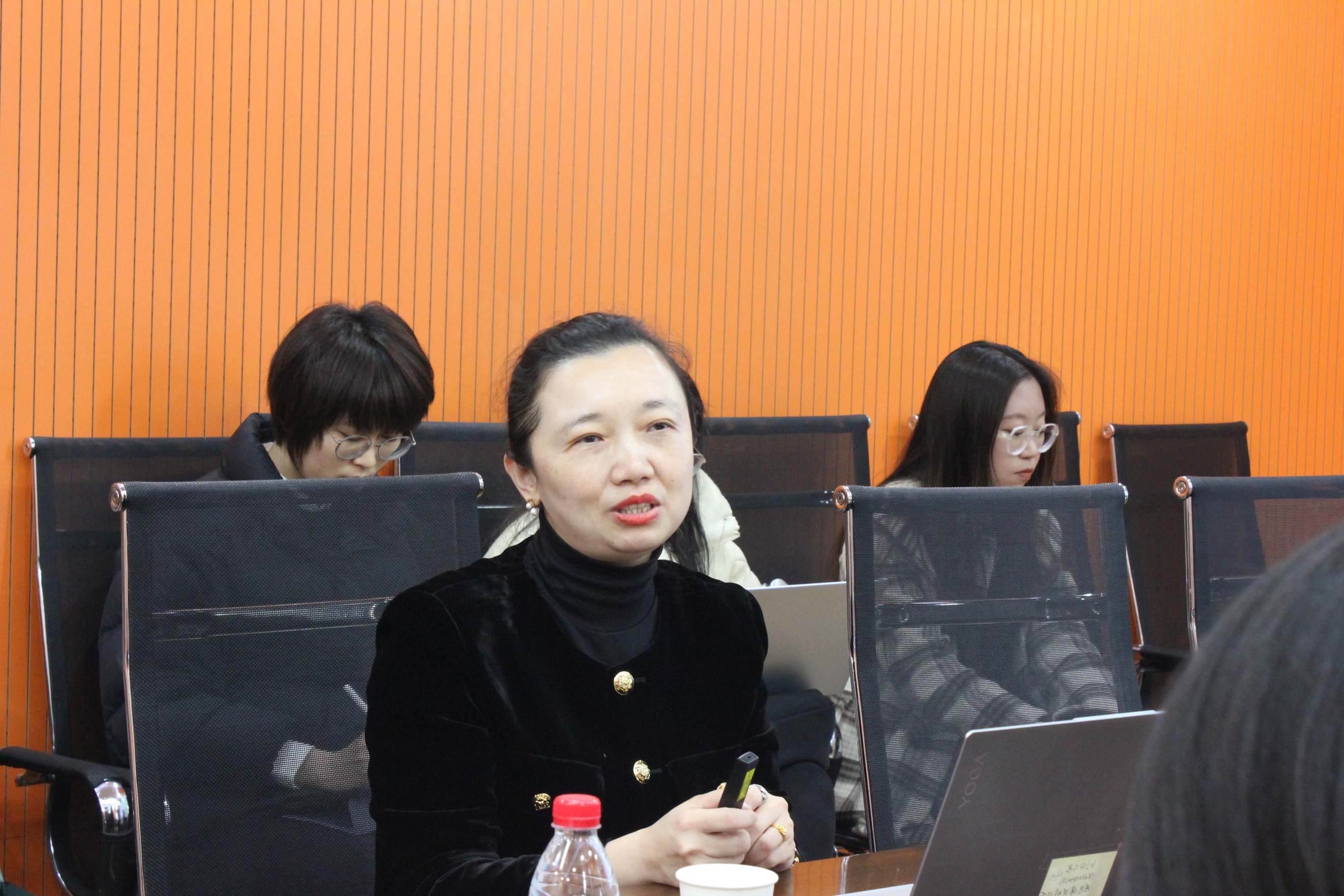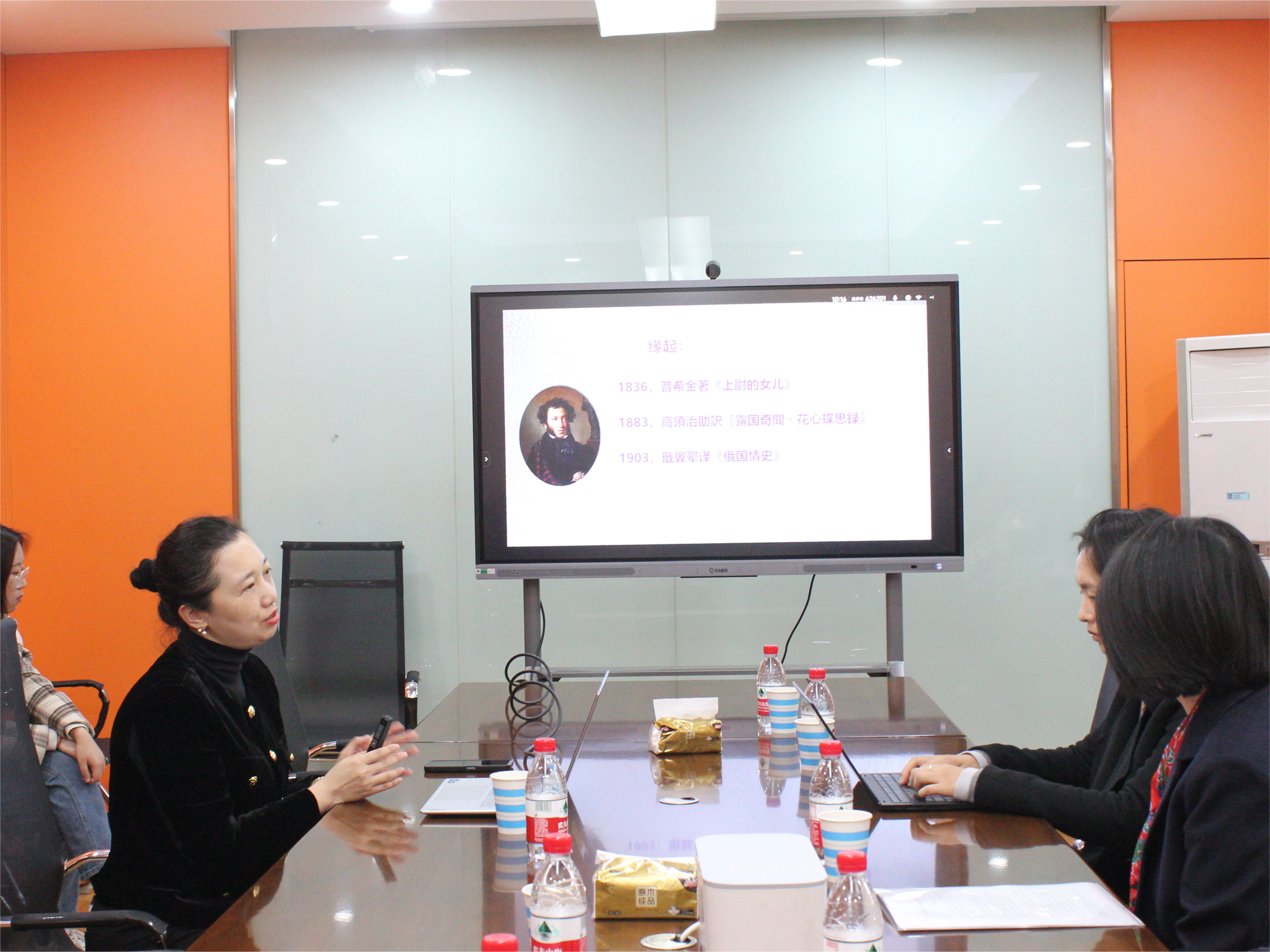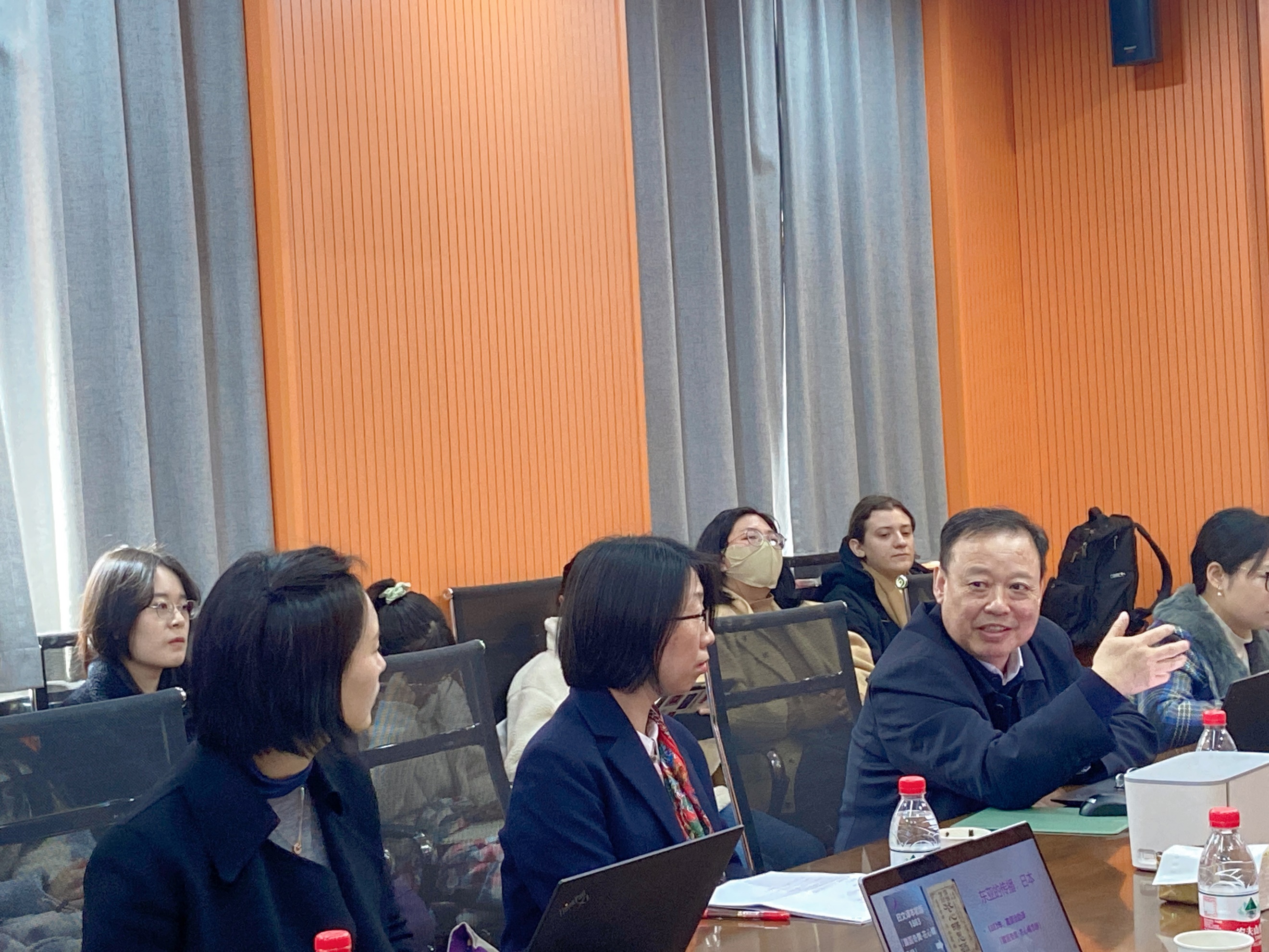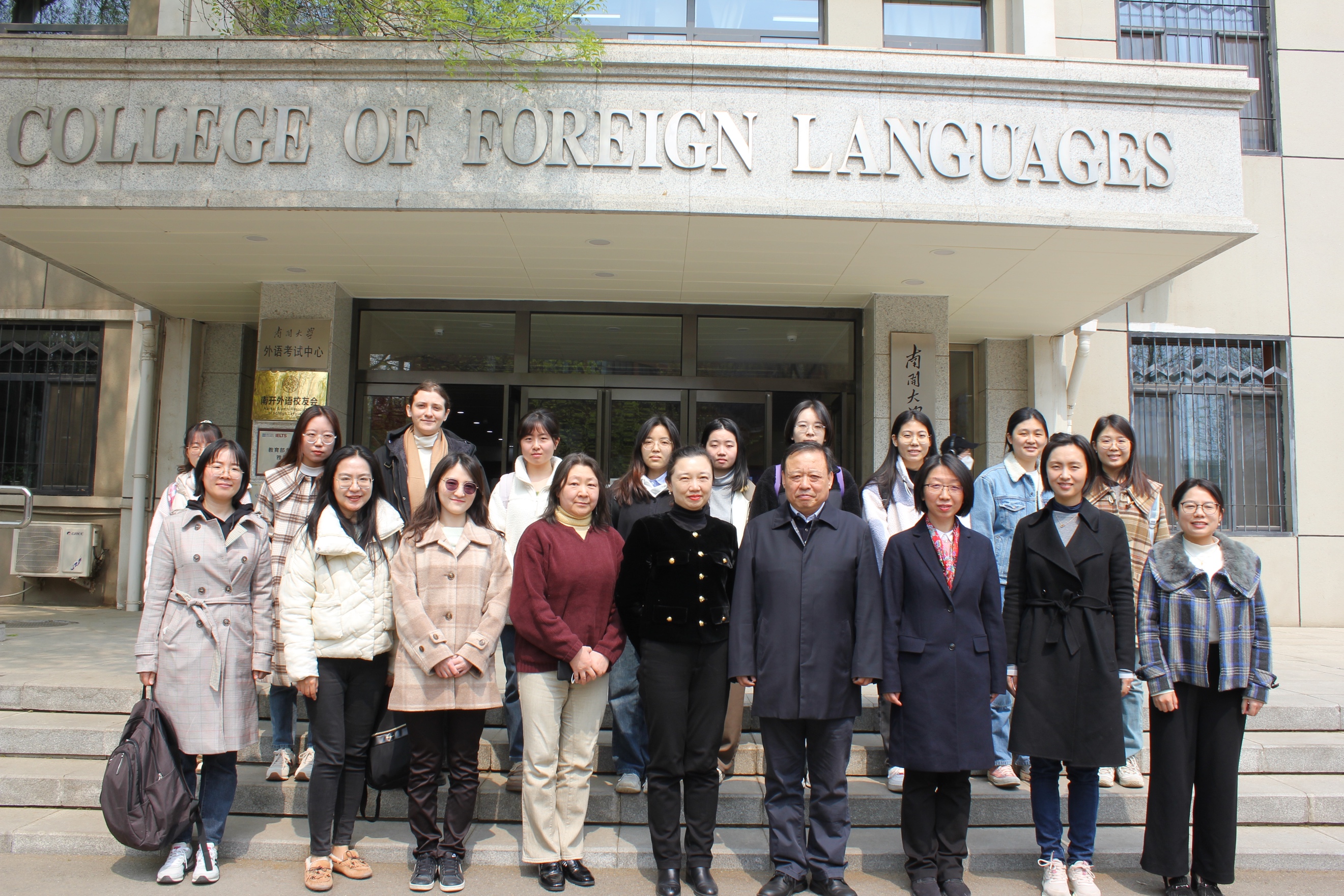On the morning of April 10, 2024, Professor Guo Rui, Vice Dean of the School of Foreign Languages at Northeastern University, delivered a captivating lecture titled “Translation of the First Russian Novels in Modern Japan” to the faculty and students of Nankai University. The lecture was hosted by the Centre for Regional and Country Studies of Nankai University, presided over by Professor Yan Guodong, Dean of the School of Foreign Languages and Director of the Centre for Regional and Country Studies. It was attended by Professor Wang Xinxin and Dr Mu Dan from the Department of Japanese, Associate Professor Yang Lin, and Dr Feng Lisi from the Department of Italian, Dr He Mengying from the Department of French, Prof Wang Chengxu from the Department of Portuguese, and more than 20 students from the School of Foreign Languages, as well as master and doctoral students.

Professor Guo Rui is the Vice Dean of the School of Foreign Languages at Northeastern University. She is a doctoral candidate with joint training from Beijing Normal University and Kyushu National University in Japan. She has been selected as one of the National Young Talents, Liaoning Province’s “Xingliao Talent Plan” Young Talents, and Liaoning Province Cultural Masters and “Four Batch” Talents, among others. Her main research areas include Chinese and Japanese Comparative Literature, Translation Studies, and Overseas Sinology. Her primary research areas include Chinese and Japanese comparative literature, translation studies, and overseas sinology studies. She has overseen more than ten projects funded by the National Social Science Foundation of China, major projects of the National Social Science Foundation of China (first-level sub-themes), and projects supported by the National Support Programme for High-level Talents. She has published a series of academic papers in top journals in the field, including CSSCI and Peking University core journals, as well as important journals both domestically and internationally, such as those in Japan and South Korea. Her notable findings have been fully replicated by the Data Reproduction Centre of Renmin University of China, the official website of China Social Science, and the academic platform of the Chinese University of Hong Kong. She has won several academic awards, such as the China Soong Ching Ling Foundation Award for Outstanding Academic Achievements in Japanese Studies and the Second Prize of Liaoning Provincial Philosophy and Social Science Achievement Award.

Professor Guo Rui’s lecture focused on the first Russian novel to be translated and published in Japan. The Captain’s Daughter, a work written by the Russian writer Pushkin in 1836, is regarded as the first realistic work in the history of Russian literature depicting the peasant revolt. It was translated into Japanese by the Japanese scholar and translator Hajisuke Takasu in 1883 under the title of Rokokukibun Kashinchouomoiroku (『露国奇聞 花心蝶思録』), which marked first time official translation of Russian novel was into In 1903, Ji Yihui translated the Japanese version of The Captain’s Daughter into Chinese. This marked the first time a Russian novel was translated into China.

In the lecture, Professor Guo Rui presents new insights on the perspective that Takasu’s translation is a “Hao Jie Yi”, and delves into other potential interpretations within the Japanese translation by uncovering new documents and historical materials, along with conducting a comparative analysis between the translation and the original text. Through a gradual exploration of the three levels of Takasu Jisuke’s translation activities and ideological tendencies, the Japanese translation’s “romance” strategy, and the Japanese translation’s “oriental” narrative, Professor Guo Rui analyzes and concludes that The Captain’s Daughter was adapted to meet market demand and employed the “romance” strategy during the translation process to Japan. The political narrative served as the semantic core, facilitating the cultural connection of the work from Russia to Japan through the modification of certain episodes. With the assistance of the traditional packaging of humanistic novels, Rokoku Kibun promotes the realism of emotions and plays a significant role in enlightening the Japanese literary circles during the Meiji period. Simultaneously, it also instills in the translator a profound sense of comparison and reflection on the history and culture of Japan and Russia, the national character, and the moral values portrayed in the translated narrative. It presents the ideological shock of Japan’s modern Enlightenment and the “spectacle” of translation it triggered.

During the Q&A, the teachers and students present asked questions enthusiastically and interacted actively with Professor Guo Rui. Prof. Yan highly praised this lecture. He introduced the research results of Russian academics on the Japanese translation of The Captain’s Daughter, explored the ways and characteristics of the early introduction of foreign literature into Japan and China, and put forward new insights on the reasons why translators make deletions and additions in their translations. Prof. Wang Xinxin affirmed the content and results of the research from a methodological perspective and explored the utilization of translations in the research. Associate Professor Yang Lin discussed the status of translated texts in Japanese literature. The lecture was successfully concluded in a warm atmosphere. In the end, Professor Guo Rui took a group photo with the teachers and students from the School of Foreign Studies.




